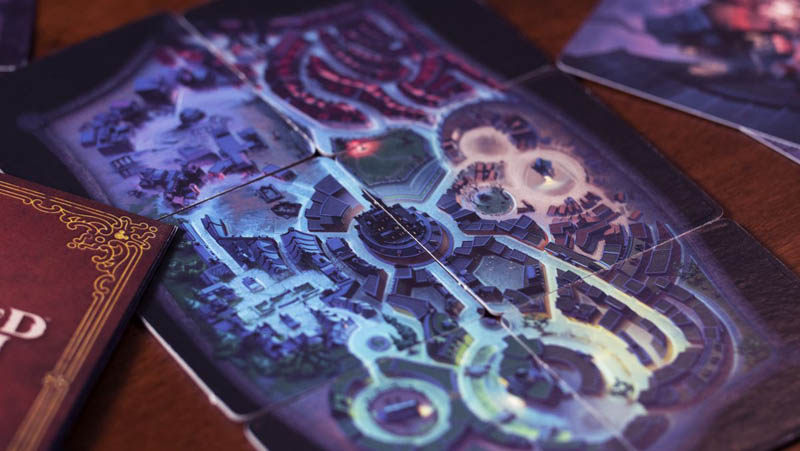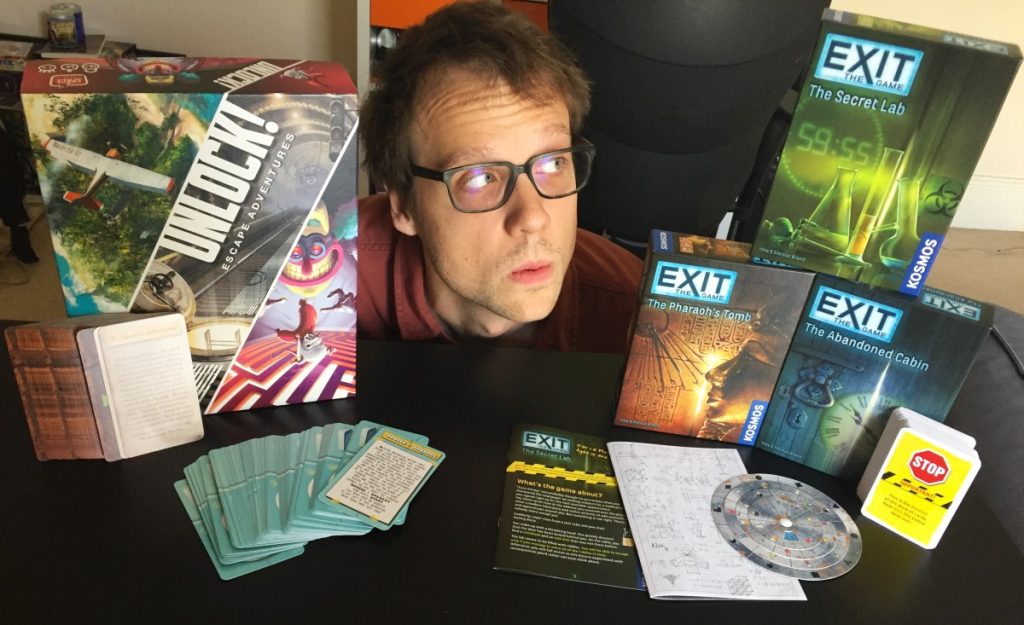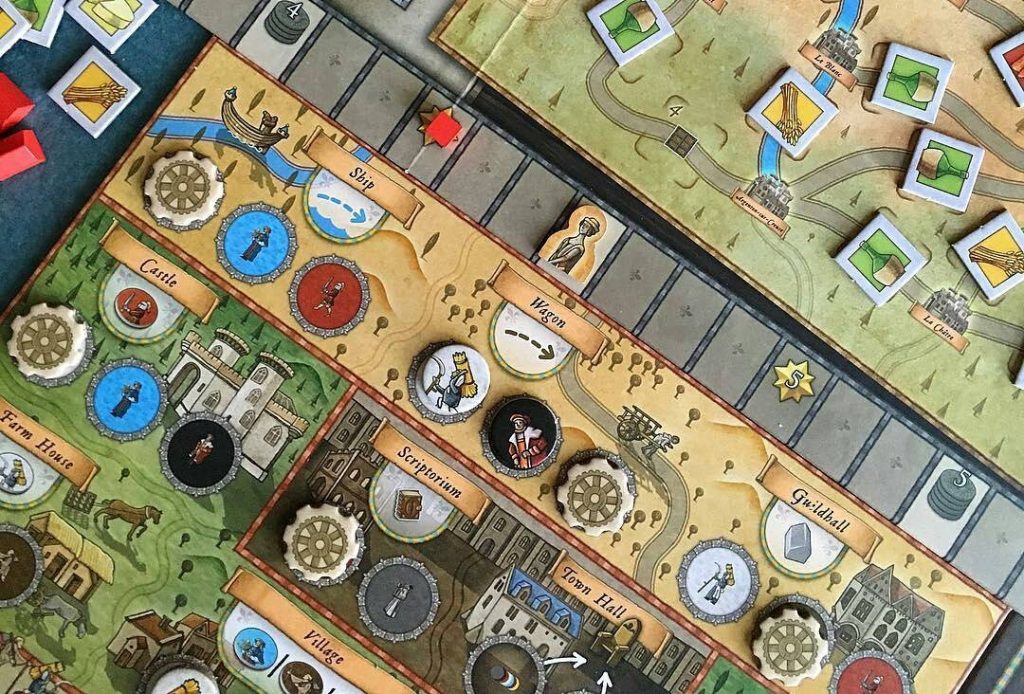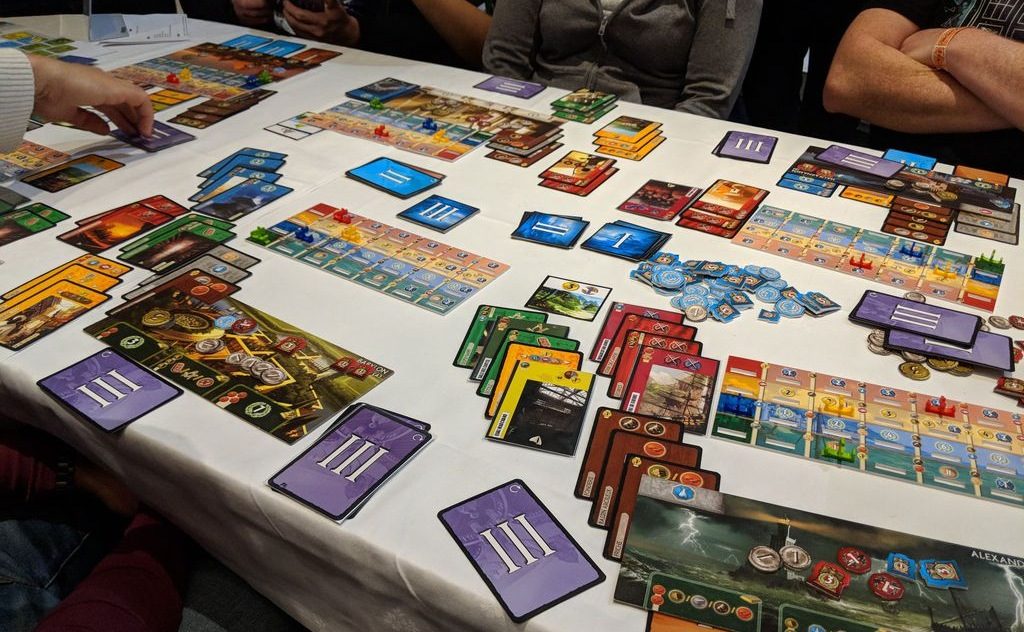Tom: Ahhhh. Don’t you love the fresh air, the rolling hills, the dry stone walls, the tiny paddocks? The babbling brook, the adorable bleats, the bark of the collie hard at work? ‘Tis a fine day to work the fields.
Ava: I don’t know why you’ve brought me here, but I’m pretty sure there’s a terrible joke coming.
Tom: It’s time to round up the Games Ewes.
Ava: Yup. There we go.
Ava: I wasn’t particularly gripped by the pitch for Disney Shadowed Kingdom in the press release, but at the last minute it said that this was going to be followed up by new bits for Unmatched, and realising Mondo was the same publisher almost made me curious. After all, Quinns recently gave Unmatched a pretty glowing review.
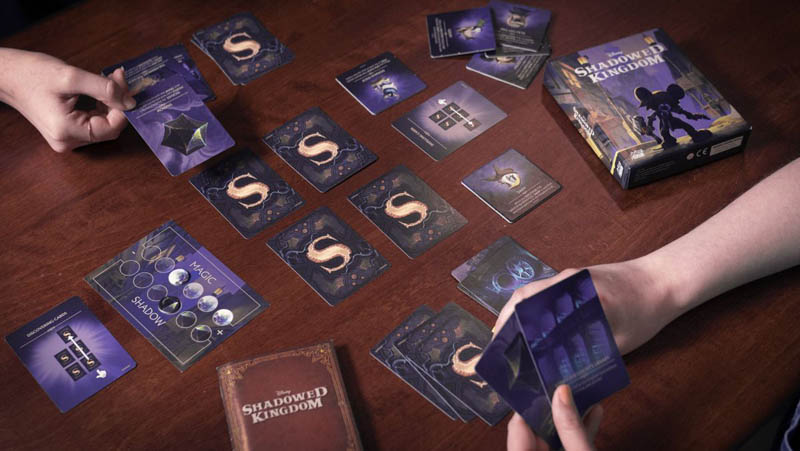
Ava: Disney Shadowed Kingdom offers a quick two-player co-operative card game of fighting shadows and finding magic, set in a very purple version of the disney ‘universe’. Illustrated by Marcel Mercado, it promises the start of a narrative that will be expanded in further, um, expansions.
The press release sometimes reads more like a business model than a game, but there’s hints of exploration here: Players will be playing cards face down into a central grid, pushing out other cards in the same row or column. Cards that fall off the edge of the grid will be activated, being ‘dispelled’ if they are pushed out the side, or ‘discovered’ if they are pushed towards a player.
You’ve got to keep track of what’s been placed where, which cards you want to discard, which you need to use, and in which order. It sounds like… a memory game. Each card has particular effects that mix stuff up, and this could make for an interesting family game for kids who’ve grown a bit beyond Pairs.
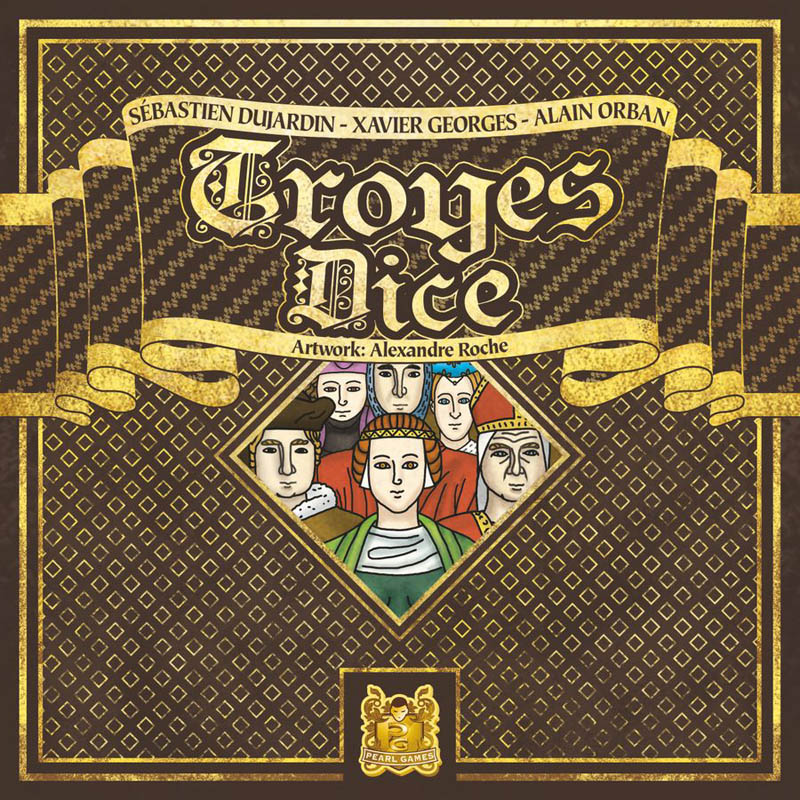
Ava: I’ve been sitting on the news about Troyes Dice for almost as long as I’ve been writing the news here. Sadly for most of that time we’ve had nothing to say except ‘they’re making a dice game of a game that already had loads of dice in it’. Now we’re closer to release and the rulebook is out, I can actually tell you something about it!
Troyes Dice gives one player the role of town crier, tasked with rolling dice and laying them around a circular board from lowest to highest – bellowing the destruction that falls wherever that one black dice falls. The rest of the dice are transparent, taking the colour of the space they’re placed on.
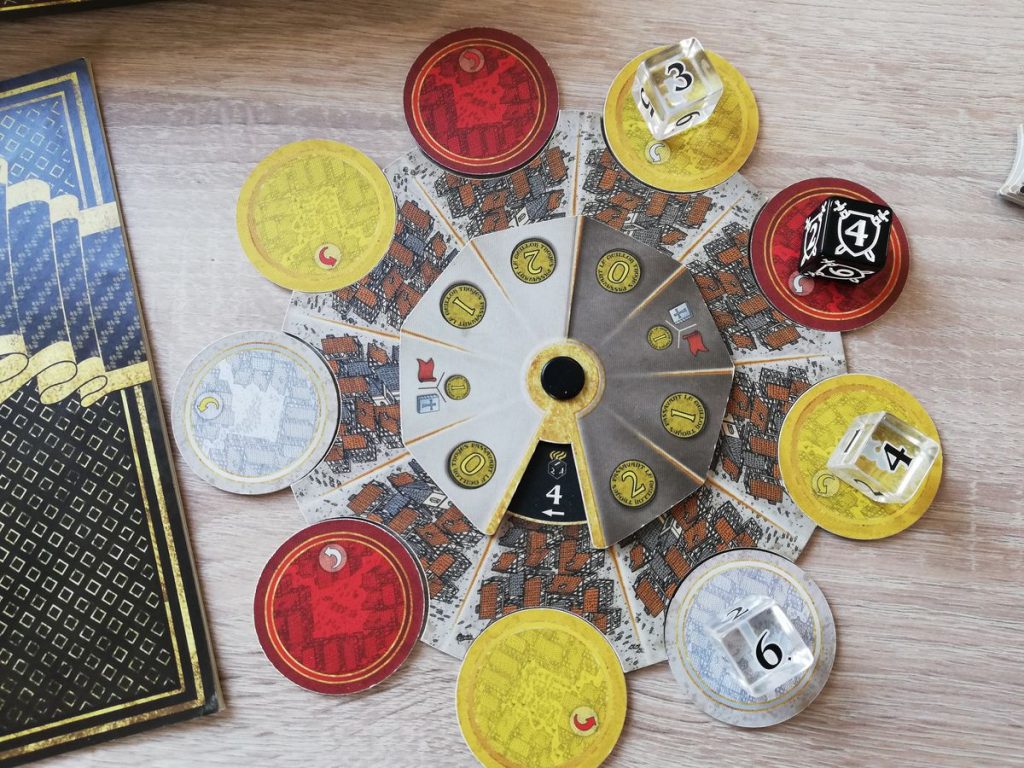
Players will then choose from the now-coloured dice to tick boxes, circles, or cross off resources and draw buildings onto their personal piece of paper. At this point the rules become exactly as byzantine as I would expect for a game based on Troyes, with multiple building types and various ways to exploit the people of the fine city of Troyes. And of course, a lovely cathedral. The game comes with a mini-expansion that adds banquets and raids to the list of things you can be rolling and writing on.
Tom: I’m just shocked they didn’t call it ‘Roman-Write’!
Ava: Troyes isn’t in Rome, or even Italy.
Tom: It sounds Roman. Or at least Greek.
Ava: It’s definitely in France, and it’s actually pronounced ‘twah’, similarly to ‘trois’.
Tom: WAIT HOLD ON. I’m getting out of my clueless character suit to reveal that I was, in fact, actually clueless this whole time. I’ve been listening to various board game podcasts talk about “this great game called ‘Trois’”, and steadily becoming more and more confused by my googling around to find said game and NOW I KNOW WHY?! This is a prank. It must be a prank. Tell me it’s a prank.
Ava: Sure, why not, it’s a prank.
Tom: Phew! I’ll put my clueless suit back on.
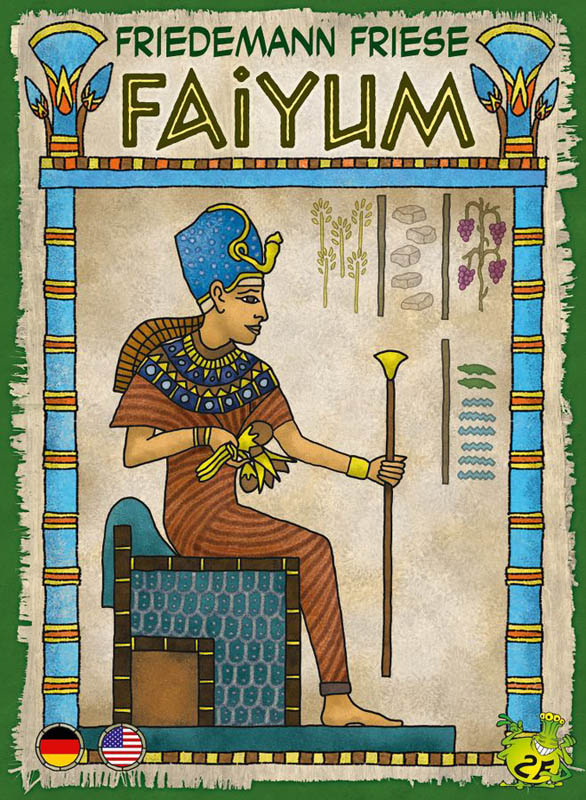
Ava: It’s a good week for convoluted but intriguing games, with Friedmann Friese’s Faiyum getting a decent write up by BoardGameGeek, who will be distributing it in America.
Faiyum offers an ancient Egyptian theme and a few ideas poached from other games. Friese’s own Power Grid’s market mechanic and deck building core have both been borrowed here, but it does add at least one potentially brilliant innovation.
Each turn you’ll be discarding cards from your hand as you play them. You can buy cards, build markets, scare off crocodiles and generally handle Nile-based infrastructure shenanigans. Once you decide you want your discarded cards back, you’ll earn income based on how few you still have in-hand (a la Concordia).
The difference here is that you get to pick up cards from the top of your discard pile. The first three are free, but any more will cost you, so the order you do things in is incredibly important. I love W Eric Martin’s comparison between traditional deck thinning and this game’s ‘card composting’. This provides scope for some very weird engine building and brings a clever time warpiness to the table.
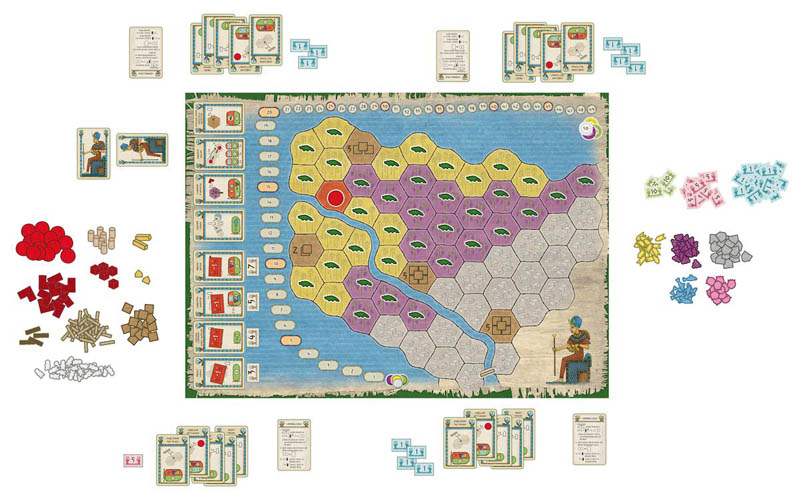
Tom: Clearing crocs and building farms isn’t all just for your benefit, though. As subservient imps, all that you actually own is the Pharaoh’s respect – meaning that other players can leap onto your best-laid farms and gang aft them so agley that all you’re left with is a pile of crocodiles and a sliver of respect. Wonderful.
Reading the rules for this one has gotten me quite excited – and that central board has got that ‘perfectly dull’ aesthetic that I’m pining for after a weekend of smushing my brain against Tigris and Euphrates. Equally, though, the fiddly redrawing-discards step is already making me nervous to play this. Still, solidarity with the character called ‘Ronald’ from the rulebook who is continually berated for getting things wrong, as a means of covering any possible misconceptions about how the game works. What a lovely teaching touch. We should start doing that in the games news.
Ava: Are you saying you want me to start calling you Ronald?
Ronald: Yes.
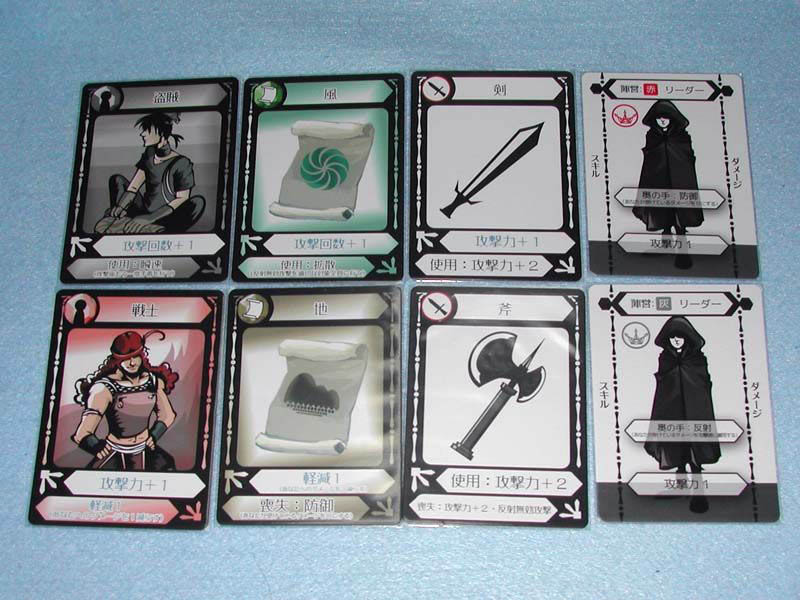
Ava: Seiji Kanai hasn’t yet made anything else as brilliantly concise as Love Letter, but few people have. That game was so close to perfection that my eyebrows will always quirk whenever I see his name.
The Last Brave is part of a new wave of games from Japanime, bringing successful Japanese games to less Japanese places. It can be played as a sneaky team game or a more direct duel. Both revolve around a central mechanic of playing cards into battles that reveal your strengths and weaknesses, but allow you to use those abilities.
Ronald: There’s something neat about that central wrinkle of a wounded opponent getting stronger rather than weaker, but other than that, little is immediately grabbing me here. I suppose the same could be said for Love Letter, though, if it appeared in a segment such as this on a day like today – so take such impressions with a healthy ounce of distrust.
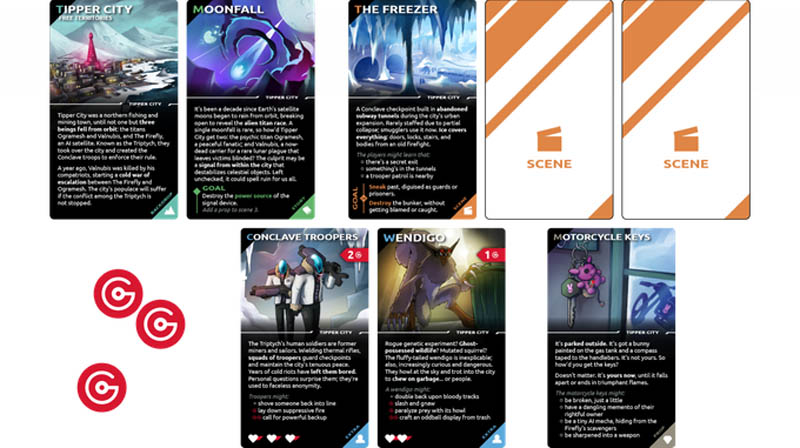
Ava: Atma is on kickstarter with the alluring promise of a simple to play roleplaying game that can be packed into a cosy box, and played in just a few hours. Using decks of cards for everything – from setting the scene to representing players – it reckons a GM can take players on an interesting and somewhat randomised adventure as quickly as shuffling some decks and laying them on the table. I’ve no idea if it can live up to that promise, but it does look cute.
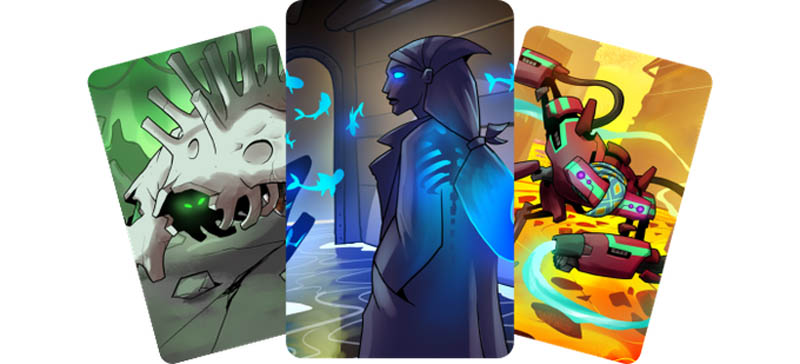
Ronald: It does look cute! What’s more, you can put it to the test in an online implementation for socially-distanced-roleplay-goodtimes, or you can ‘Just Add Printer’ to the downloadable print-and-play version for socially-huddled-in-person-roleplay-goodtimes. Both options are free, so take a gander if you like your roleplaying games pacy and chaotic.
Matt: Both options may be free, but only one of them scans without making my brain hurt.
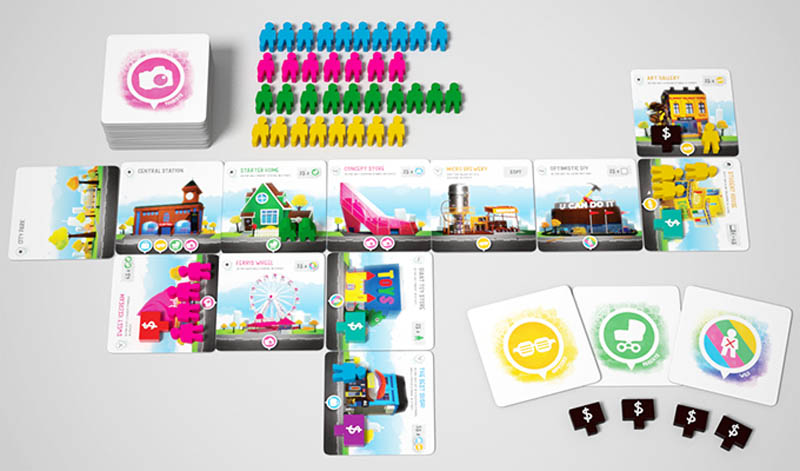
Ava: Also looking cute on Kickstarter is Streets, a sort of follow up to Villagers – a game that had the same overly bright, flattened appearance. Streets is a tile laying game of building streets to please ‘hipsters, tourists, parents and shoppers’. Just like in real life, these inhabitants will increase the value of places they occupy, but move as soon as they have scored. I can’t work out if I’m being satirical or filthy, so let’s move on.
In ridiculous news, you can now get a ludicrously expensive Louis Vuitton monogrammed dice holder (and I think it comes with dice too!). I don’t really like pointing and laughing at hugely expensive things, because actually it just makes me a bit sad to remember we live in a world where some people could just treat that as an impulse buy. Then I remember that plenty of people would similarly balk at the amount I spend on board games. Maybe this is too sad for the news. We’re all trapped in capitalism and the enormous inequality it creates and I don’t know how to fix that.
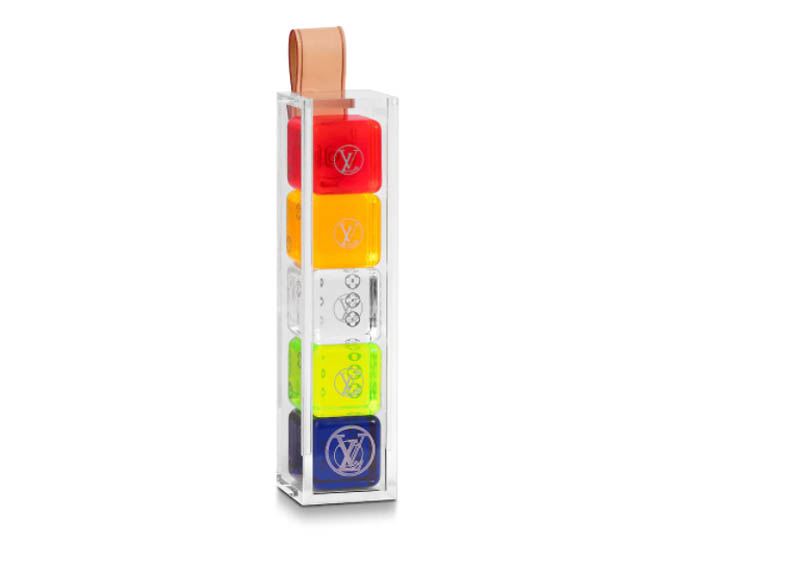 Ronald: Sorry, Ava, but ‘The Price Is Dice’ is currently #2463 on the ‘Bad Things Happening in 2020 List’.
Ronald: Sorry, Ava, but ‘The Price Is Dice’ is currently #2463 on the ‘Bad Things Happening in 2020 List’.
Ava: What about ‘Being Trapped inside the Horrors of Capital’
Ronald: Oh, we all know where that one is.
Ava: …
Ronald: …
Ava: …
Ronald: Can I have my name back?
Ava: We’ll talk about it next week.

